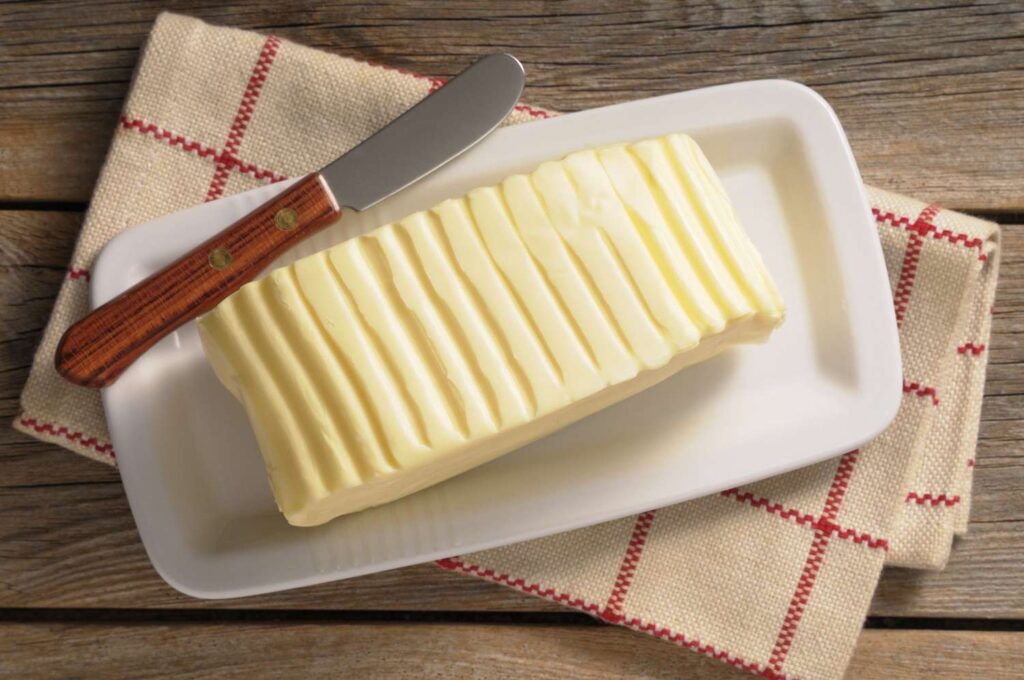Butter is a versatile and delicious ingredient that can enhance the flavor of many dishes. Properly storing butter is crucial for maintaining its freshness and flavor. If you have salted butter and plan to use it within a week, it is acceptable to keep it in a covered butter dish at room temperature. Whether you use it for cooking, baking, or spreading on toast, ensuring proper storage is essential to keep the butter fresh and flavorful for as long as possible. In this article, we will explore the best practices for storing butter and extending its shelf life so that you can enjoy it to the fullest. Here are some tips on how to store butter properly.
Understanding Butter Storage Basics
Before diving into the specifics of butter storage, it’s important to understand a few key points. Butter consists of fat, water, and milk solids as its primary components. The fat content in butter makes it susceptible to spoilage, particularly when exposed to air, light, heat, and moisture. By addressing these factors, you can significantly prolong the shelf life of your butter.
Choose the Right Butter
When it comes to selecting butter for storage, it’s important to choose high-quality butter from a reputable source. Look for butter that has a rich, creamy color and is made from the milk of grass-fed cows. Grass-fed butter tends to have a higher concentration of healthy fats, vitamins, and minerals.
Refrigerate for Optimal Storage
The best way to store butter is in the refrigerator. The cool temperature helps to slow down the oxidation process and prevent spoilage. When refrigerated, butter can typically last for several weeks, even up to a month. Ensure that your refrigerator is set to a temperature below 40°F (4°C) to maintain the freshness of your butter.
Use an Airtight Container
To protect butter from exposure to air, it is crucial to store it in an airtight container. Air can cause the butter to oxidize, resulting in a rancid taste and aroma. A simple butter dish with a tight-fitting lid or a sealed plastic container will do the trick. Make sure the container is clean and dry before placing the butter inside.

Keep Away from Strong Odors
Butter has the remarkable ability to absorb odors from its surroundings. To prevent your butter from developing off-flavors, it is important to store it away from strong-smelling foods in the refrigerator. Keep it away from foods like onions, garlic, and cheese, as well as any other items with strong fragrances.
Consider Butter Bell or Butter Keeper
If you frequently use butter and prefer to keep it at room temperature, a butter bell or butter keeper can be a great option. These devices use a water seal to create an airtight environment, keeping the butter fresh and spreadable for up to a month. Remember to change the water every few days to maintain freshness.
Freeze for Extended Storage
If you have excess butter or want to stock up during a sale, freezing is an excellent option. Butter can be safely stored in the freezer for up to six months without significant loss in quality. To freeze butter, wrap it tightly in plastic wrap or aluminum foil, and then place it in a freezer bag to protect it from freezer burn.
Thaw Butter Properly
When you need to use frozen butter, it is important to thaw it properly to maintain its texture and flavor. The best method is to transfer the frozen butter to the refrigerator and allow it to thaw slowly overnight. Avoid microwaving frozen butter as it can result in uneven thawing and affect its quality.
Check for Signs of Spoilage
Even with proper storage, butter can still spoil over time. Before using butter, always check for signs of spoilage. Look for any off smells, changes in color, or the presence of mold. If you notice any of these signs, discard the butter immediately to avoid foodborne illnesses. By following these guidelines, you can store butter properly and enjoy.

